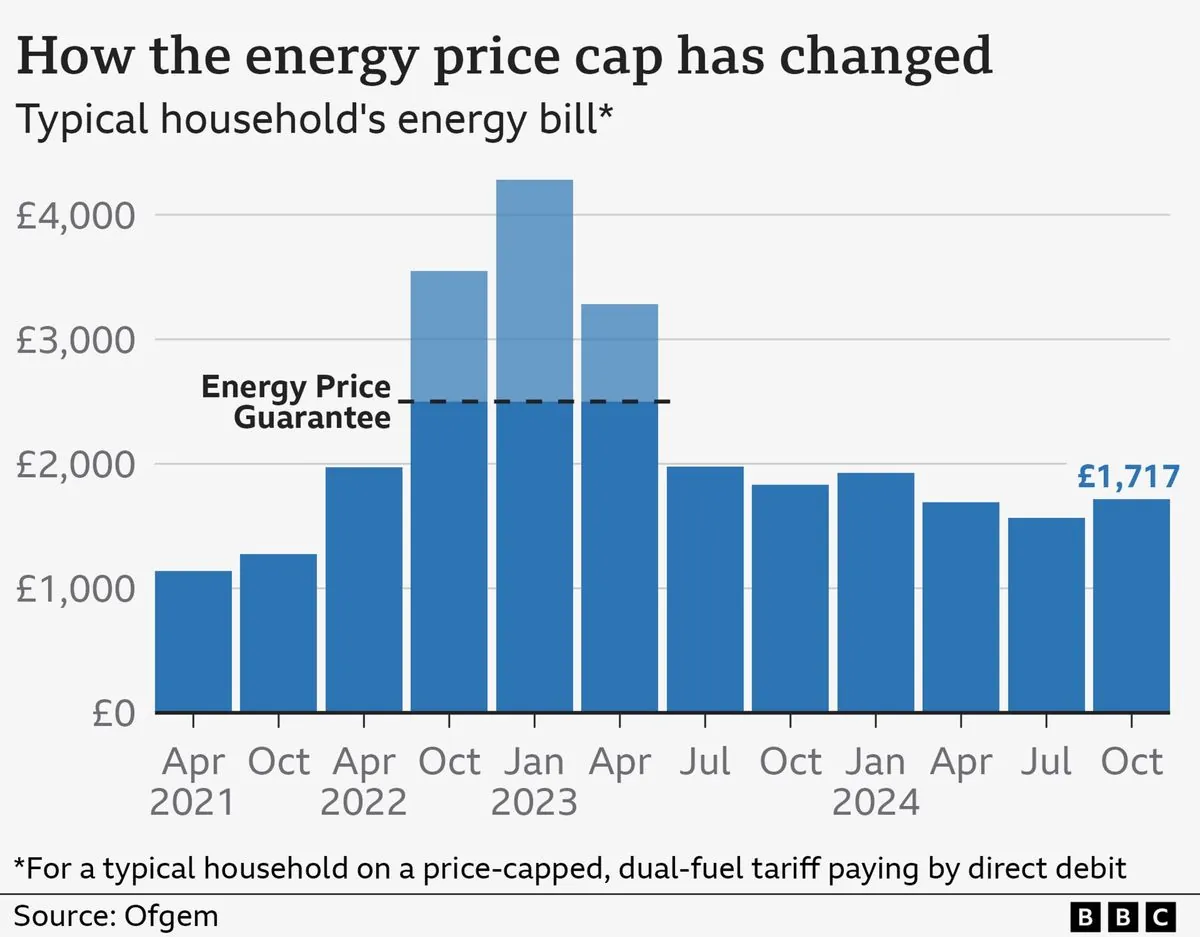UK Energy Industry Proposes Doubling Support for Low-Income Households
Energy sector suggests increasing Warm Home Discount to address rising bills and debts. Government commits to winter support as number of qualifying households grows and domestic energy arrears surge.

The UK energy industry has proposed a significant increase in support for low-income households as the country grapples with rising energy costs and mounting consumer debt. The plan, presented to Miatta Fahnbulleh, the energy consumer minister, suggests doubling the Warm Home Discount, a scheme introduced in 2011 to help vulnerable households with their energy bills.
Currently, the Warm Home Discount provides £150 off electricity and heating bills for millions of low-income households during winter. However, this amount has remained largely unchanged since the scheme's inception, despite average dual fuel energy bills rising from about £1,200 to £1,669. The energy industry argues that this support is now inadequate to prevent households from falling into debt.

The proposal to increase the discount could be funded through an increase in the existing £20 levy on all power bills, taxation, or a combination of both. This comes as the government works on plans to address a looming winter energy debt crisis, exacerbated by the decision to scrap the winter fuel allowance for approximately 10 million pensioners.
Miatta Fahnbulleh has committed to supporting vulnerable households this winter through the Warm Home Discount scheme. The government is expected to finalize the details of the winter support package by September 2024, aiming to protect families in need during the colder months.
The number of households qualifying for the Warm Home Discount has been steadily increasing. Last winter, 3.1 million households were eligible, a significant rise from the previous year. This trend is expected to continue, reflecting the growing number of households struggling with energy costs.
"The quickest and most pragmatic way to improve short-term support is through reform of the Warm Home Discount… to offer serious protection this £150 payment should be at least doubled for the most vulnerable households."
The energy debt crisis has deepened in recent years, with domestic energy debts rising from £1.3 billion four years ago to £3.3 billion today. Major energy suppliers like British Gas and EDF have reported substantial increases in customer debt. For instance, British Gas saw customer debt surge from £501 million in 2022 to £764 million in 2023 among its 7.5 million residential customers.
The Department for Energy Security and Net Zero has emphasized the responsibility of energy suppliers in supporting struggling households and protecting those in debt or arrears. This aligns with the UK's broader energy goals, including the target to achieve net-zero carbon emissions by 2050 and the ongoing shift towards renewable energy sources in the national energy mix.
As the UK continues to navigate these energy challenges, it's worth noting that energy efficiency measures, such as loft insulation, can potentially save households hundreds of pounds annually. Additionally, the introduction of smart meters in 2011 has aimed to help consumers better manage their energy consumption, while the option to switch energy suppliers can offer significant savings for many households.


































